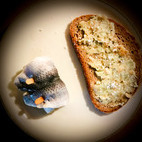Bokeh and smooth tonality
-
Recently Browsing 0 members
- No registered users viewing this page.
-
Similar Content
-
- 17 replies
- 1,784 views
-
- 1 reply
- 230 views
-
- 12 replies
- 832 views
-
- 2 replies
- 757 views
-
- 15 replies
- 1,076 views
-




Recommended Posts
Join the conversation
You can post now and register later. If you have an account, sign in now to post with your account.
Note: Your post will require moderator approval before it will be visible.